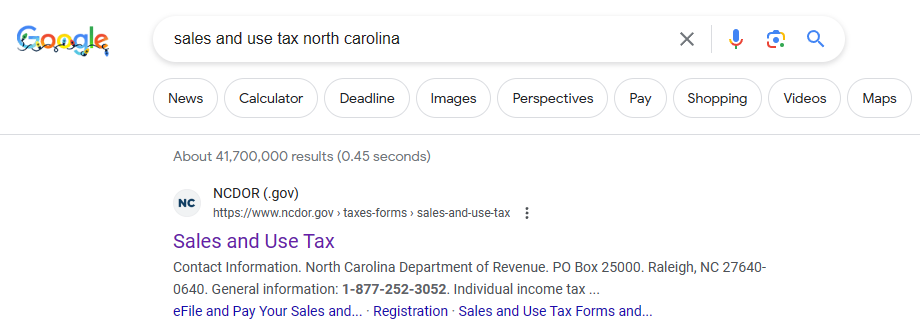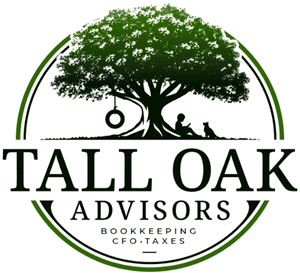If you are an Amazon FBA arbitrage reseller, you’ve probably paid sales tax on your inventory purchases.
This drains your margin!
As a reseller, you are not legally required to pay sales taxes on the inventory you purchase for resale. When you purchase from normal wholesale suppliers, they will always ask you for a resale certificate. By default, they assume you are reselling the items.
When you are sourcing from retailers, it becomes a little more of a challenge. By default, they assume you are a consumer and are not reselling the items. Since that’s the case, they will charge you sales tax, even though you are not legally required to do so.
While the easiest way is to have items shipped to states that don’t have sales tax, this might not always be feasible. So, let’s dive into the process of getting sales tax exemption for resale items.
Step 1: Obtain a Sales and Use Tax License
The first thing you need to do is get a sales and use tax license from your specific state. If you’re selling only on Amazon and eBay, you may not need a sales and use tax license. But, to save on sales taxes, you need to have it.
To obtain the license, simply search for “sales and use tax” along with your state’s name on Google.

You will find the official website where you can open an account and follow the instructions provided.
- If you are doing retail arbitrage, you will need a separate license for each state you plan to buy from.
- If you are doing online arbitrage, you will need a separate license for each state you are delivering your products to.
Step 2: Utilize the Sales Tax ID Number
Once you have obtained your sales and use tax license, you can start utilizing the sales tax ID number to save those sweet sales tax dollars.
Some retailers will accept your resale form along with the sales tax ID number.
Option A: Retailers Accepting Resale Licenses
If a retailer accepts resale licenses, you can use the sales tax ID number and the resale form to become sales tax exempt. You will need to fill out a multi-jurisdiction resale form, which is a form accepted by almost every state. This form allows you to include the sales tax ID numbers for multiple states, such as New York and New Jersey, on a single document. Fill out this form for every retailer you plan to buy from.
Option B: Requesting Sales Tax Refund
In some states, such as Virginia, New Jersey, Colorado, Ohio, North Carolina, California, Maryland, and Texas, you can request a refund for the sales tax paid on resale items. However, the process and eligibility criteria vary by state. You must fill out a form with the state and provide receipts for each purchase you made. The process can be time-consuming and may take a few months to receive the refund. Keep in mind that not all states offer this option, so make sure to research the specific state’s requirements.
Ongoing Obligations
Once you have opened a sales tax account, it’s important to fulfill your ongoing obligations. You may be required to file forms with the state every month, quarter, or annually, depending on the frequency specified by the state. These forms will require you to report your sales and indicate the amount that is exempt due to Amazon or eBay collecting the sales tax. It is crucial to file these forms regularly to avoid any penalties or legal issues.
It is relatively easy to do it yourself for free. Just ensure that you stay on top of your filings to avoid any problems with the states.
Do I Need a Sales and Use Tax License?
This depends if you have a physical or economic nexus in the state. This also depends if you are only selling on Marketplaces like Amazon, eBay, or Etsy, or selling on your website like Shopify.
- Only Sell on Marketplaces:
- Each state’s laws require anyone selling items in a state that has physical nexus in it (which you do, if you live there) by default. These are the old-school rules that have been around for eons. The marketplace facilitator laws enacted by each state typically define what needs to happen with remote sellers and marketplace facilitators (Amazon). SOME states have specific laws stating whether certain conditions are necessary NOT to have to file. This means that you should file unless the state you are in specifically says you don’t need to.
- States that we have verified have laws stating you don’t need to file if you are a marketplace-only seller as of January 2024: VA, CO, NC, CA, MD, MI, WI.
- If you are not in these states, it is highly recommended that you request a sales tax permit from the state you reside in.
- If you reach economic nexus levels for various states, you may be required to open a sales tax permit in states other than the one you reside in.
- Sell on Shopify or Locally:
- You will need a sales tax permit.
If you are an Amazon FBA arbitrage reseller, you’ve probably paid sales tax on your inventory purchases.
This drains your margin!
As a reseller, you are not legally required to pay sales taxes on the inventory you purchase for resale. When you purchase from normal wholesale suppliers, they will always ask you for a resale certificate. By default, they assume you are reselling the items.
When you are sourcing from retailers, it becomes a little more of a challenge. By default, they assume you are a consumer and are not reselling the items. Since that’s the case, they will charge you sales tax, even though you are not legally required to do so.
While the easiest way is to have items shipped to states that don’t have sales tax, this might not always be feasible. So, let’s dive into the process of getting sales tax exemption for resale items.
Step 1: Obtain a Sales and Use Tax License
The first thing you need to do is get a sales and use tax license from your specific state. If you’re selling only on Amazon and eBay, you may not need a sales and use tax license. But, to save on sales taxes, you need to have it.
To obtain the license, simply search for “sales and use tax” along with your state’s name on Google.

You will find the official website where you can open an account and follow the instructions provided.
- If you are doing retail arbitrage, you will need a separate license for each state you plan to buy from.
- If you are doing online arbitrage, you will need a separate license for each state you are delivering your products to.
Step 2: Utilize the Sales Tax ID Number
Once you have obtained your sales and use tax license, you can start utilizing the sales tax ID number to save those sweet sales tax dollars.
Some retailers will accept your resale form along with the sales tax ID number.
Option A: Retailers Accepting Resale Licenses
If a retailer accepts resale licenses, you can use the sales tax ID number and the resale form to become sales tax exempt. You will need to fill out a multi-jurisdiction resale form, which is a form accepted by almost every state. This form allows you to include the sales tax ID numbers for multiple states, such as New York and New Jersey, on a single document. Fill out this form for every retailer you plan to buy from.
Option B: Requesting Sales Tax Refund
In some states, such as Virginia, New Jersey, Colorado, Ohio, North Carolina, California, Maryland, and Texas, you can request a refund for the sales tax paid on resale items. However, the process and eligibility criteria vary by state. You must fill out a form with the state and provide receipts for each purchase you made. The process can be time-consuming and may take a few months to receive the refund. Keep in mind that not all states offer this option, so make sure to research the specific state’s requirements.
Ongoing Obligations
Once you have opened a sales tax account, it’s important to fulfill your ongoing obligations. You may be required to file forms with the state every month, quarter, or annually, depending on the frequency specified by the state. These forms will require you to report your sales and indicate the amount that is exempt due to Amazon or eBay collecting the sales tax. It is crucial to file these forms regularly to avoid any penalties or legal issues.
It is relatively easy to do it yourself for free. Just ensure that you stay on top of your filings to avoid any problems with the states.
Do I Need a Sales and Use Tax License?
This depends if you have a physical or economic nexus in the state. This also depends if you are only selling on Marketplaces like Amazon, eBay, or Etsy, or selling on your website like Shopify.
- Only Sell on Marketplaces:
- Each state’s laws require anyone selling items in a state that has physical nexus in it (which you do, if you live there) by default. These are the old-school rules that have been around for eons. The marketplace facilitator laws enacted by each state typically define what needs to happen with remote sellers and marketplace facilitators (Amazon). SOME states have specific laws stating whether certain conditions are necessary NOT to have to file. This means that you should file unless the state you are in specifically says you don’t need to.
- States that we have verified have laws stating you don’t need to file if you are a marketplace-only seller as of January 2024: VA, CO, NC, CA, MD, MI, WI.
- If you are not in these states, it is highly recommended that you request a sales tax permit from the state you reside in.
- If you reach economic nexus levels for various states, you may be required to open a sales tax permit in states other than the one you reside in.
- Sell on Shopify or Locally:
- You will need a sales tax permit.


